
Warren Buffetts aktieudvalg ser ikke ud, som de plejede.
Berkshire Hathaway (BRK.B) aktieportefølje har gennemgået en del omvæltninger de seneste par år. For det første har Berkshire Hathaways investeringsarm fået smag for vækstspil. Mens gammeldags favoritter som American Express og Coca-Cola stadig hænger rundt, har Buffett &Co. taget en glans til aktier som Apple og Amazon.com og endnu mindre kendte virksomheder som Snowflake og StoneCo.
Men Berkshire Hathaway-porteføljen har også gennemgået adskillige klipninger i løbet af det seneste år eller deromkring. Buffett har trimmet eller skåret snesevis af aktier, da COVID-19-pandemien drastisk ændrede investeringslandskabet. Han ejede flere flyselskaber i starten af 2020; nu har han ingen. Banker var esser blandt Buffett-aktier for at begynde 2020; Berkshire brugte hele året på at sparke dem til kantstenen.
Nå ... det er 2021, og "Onkel Warren" er ikke holdt op med at sælge.
Buffett brød kosten ud endnu en gang i årets tredje kvartal ved at trimme eller skære 10 positioner direkte. I mellemtiden erstattede han kun de udgående aktier ved at tilføje til to positioner og indlede to nye indsatser. Det fremgår af dets seneste formular 13F-lovgivningsarkiv, indsendt til Securities and Exchange Commission den 15. november.
Hvis du vil vide, hvilke aktier den legendariske investor Warren Buffett mener er sin tid og opmærksomhed værd, skal du ikke lede længere end Berkshire Hathaway-aktieporteføljen. (Og som altid, husk:Nogle få af disse Buffett-aktier blev faktisk valgt af porteføljeforvalterne Todd Combs og Ted Weschler.)
Læs videre, mens vi undersøger hver enkelt beholdning for at give investorerne en bedre forståelse af hele Berkshire Hathaway-porteføljen.

United Parcel Service (UPS, $211,52) er her stadig.
Verdens største pakkeleveringsvirksomhed er fortsat den mindste position blandt Warren Buffetts aktier. Det hænger i en tråd, men det har gjort det i et stykke tid – faktisk mere end 15 år.
Måske er grunden til, at onkel Warren ikke har droppet bestanden, at han ikke engang bemærker det længere. Med færre end 60.000 andele er dette en bagdelposition, rester, en ulige masse.
Det er bestemt mindre end hvad Buffett startede med. UPS-aktier blev føjet til Berkshire Hathaway-porteføljen i løbet af første kvartal af 2006, hvor Buffett tilføjede 1,43 millioner aktier til en værdi af omkring 113,5 millioner USD på det tidspunkt. Det kommer til en gennemsnitlig pris pr. aktie på $79,38.
Men UPS voksede aldrig til at blive en stor del af Berkshire Hathaways portefølje, og Buffett har i årenes løb justeret positionen til, hvor det ikke ville være en overraskelse, hvis han forlod indsatsen på noget tidspunkt. Han har også været karakteristisk stille omkring staven; der er ingen omtale af United Parcel Service i CNBC's uundværlige Warren Buffett-arkiv.
UPS-andelen har været en skuffelse i mange år, hvor aktien har leveret et samlet afkast (kurs plus udbytte) på 321 % siden 31. marts 2006, mod 398 % for det bredere marked. Det har i det mindste klaret sig bedre siden COVID-nedgangen, så det er noget salve for Buffett &Co.
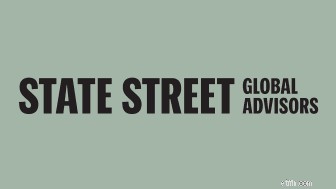
Warren Buffetts råd til de fleste investorer har altid været enkelt:Køb en S&P 500-indeksfond, og mens du er i gang, smid lidt penge ind i statsobligationer for at hjælpe dig med at sove godt på markeder, der falder.
Men i årevis var det altid "indeksering for dig, men ikke for mig." Markedets mest berømte aktievælger blev ved med at gøre, hvad han altid har gjort:at vælge aktier og ikke indeksere en eneste krone.
Buffett tog endelig sin egen medicin i 2019's sidste omgang, men han købte ikke én men to S&P 500-sporende børshandlede fonde (ETF'er).
Den første af dem er USAs første ETF: SPDR S&P 500 Trust ETF (SPY, $467,43). SPY'en sporer de 500 komponenter i S&P 500-indekset. Det gør den for ekstremt rimelige 0,0945% årligt, hvilket kommer til kun $9,45 årligt på en $10.000 investering. Mens mange bruger det som en køb-og-hold-investering, gør dets høje volumen det også til et populært værktøj for handlende.
Det er dejligt, at Buffett endelig lagde sine penge, hvor hans mund var. Men hvis vi skal være ærlige, er det en mærkelig position for en mand, der aktivt forsøger at slå indekset. Når alt kommer til alt, sporer en ETF blot et indeks og vil faktisk underperforme en smule, når først omkostningerne er inkluderet.
Hvem ved? Måske ville onkel Warren egentlig bare køre hans mangeårige pointe hjem.

Hvor seriøs er Buffett med indeksfonde? Nå, han tog emnet op igen på dette års årlige Berkshire Hathaway-møde og sagde: "Jeg anbefaler S&P 500-indeksfonden og har gjort det i lang, lang tid."
Måske er det derfor, han udover SPY også købte Vanguard S&P 500 ETF (VOO, $429,77) tilbage i 2019.
For det meste er VOO stort set det samme produkt som SPY. Begge fonde sporer S&P 500's komponenter. Begge midler er ekstremt likvide. Den væsentligste forskel er prisen. VOO har bare et lavere gebyr (typisk for Vanguard ETF'er) på 0,03 % årligt, i forhold til SPY'ens 0,0945 %.
Når du lægger Berkshires investeringer sammen i de to sporingsfonde, begynder du at indse, at disse investeringer sandsynligvis stort set er symbolske. Hver andel repræsenterer omkring en hundrededel af en procent af Berkshire Hathaways aktiebeholdning.
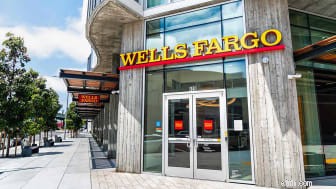
Warren Buffett har haft det.
Wells Fargo (WFC, $51,08), som har været i Berkshire-porteføljen siden 2001, blev engang betragtet som blandt de mest skattede af Buffett-aktier. Men det blev til en vægt om Oraklets hals, der startede i 2016, da adskillige skandaler boblede til overfladen. Banken åbnede millioner af falske konti, ændrede realkreditlån uden tilladelse og opkrævede kunder for en bilforsikring, de ikke havde brug for.
Oprydningsprocessen har været langsom, og den har ikke gjort krav på én men to administrerende direktører. WFC-aktien har i mellemtiden haltet efter sine jævnaldrende i et stykke tid.
Så Buffett begyndte at sælge, først lidt, så meget, til det punkt, hvor Wells Fargo er blevet henvist til porteføljens kælder.
Berkshire solgte WFC-aktier i adskillige kvartaler siden starten af 2018. Men i adskillige kvartaler så de fleste af disse salg ud til at være en rutinemæssig sammenskæring af positionen for at holde den under en lovpligtig maksimal ejerskabstærskel på 10 % for banker.
Så kom hacksaven:
Hvis der er nogen frelsende nåde, er det, at han har ladet resten være i fred i et par kvarter.
Ikke desto mindre er Warren inden for omkring et år gået fra en af Wells Fargos største aktionærer til at eje en ubetydelig del af kagen.

En anden mager stilling, der overlevede endnu et kvarter, er Mondelez (MDLZ, $62,85), hvis mærker inkluderer Oreo-kager, Cadbury-chokolade, Halls hostedråber, Trident-gummi og Triscuit-kiks.
I 2007 investerede Buffett i det, der dengang var kendt som Kraft Foods. Den pakkede fødevarevirksomhed skiftede navn til Mondelez i 2012 efter at have udskilt sin nordamerikanske dagligvarevirksomhed, som hed Kraft Foods Group og handles under tickeren KRFT. Kraft Foods Group fusionerede senere med H.J. Heinz i en 2015-aftale støttet af Buffett for at danne Kraft Heinz.
Et par år senere, i 2017, nedskød Buffett spekulationerne om, at Kraft Heinz ville købe den globale snackgigant.
Berkshire Hathaway har en betydelig andel i KHC (mere om det om lidt). MDLZ, ikke så meget. Berkshire er ikke engang blandt Mondelez' top 100 aktionærer med kun 0,04 % af MDLZ-aktierne, ifølge data fra S&P Global Market Intelligence. Og Mondelez er en intetborger blandt Buffett-aktier og tegner sig for kun 1/100 procent af den samlede værdi af BRK.B's aktieportefølje.
Den lille position holdt sig godt under bjørnemarkedet, da investorerne tilføjede nogle forbrugsaktier til forsvar. Men MDLZ har givet mere beskedne afkast, siden aktierne kom i gear igen. Alt i alt er Mondelez-aktien kun steget med 10 % siden den 19. februar 2020, som var i top, mens S&P 500 har leveret mere end 42 % i samlet afkast.
Intet at se her, folkens.

Warren Buffett er tydeligvis glad for Dow Jones-aktier, som kan findes i hele Berkshire Hathaway-porteføljen. Men Procter &Gamble (PG, $147,40) er en Dow-komponent, der er faldet af vejen som en Berkshire Hathaway-investering.
Buffett kom til at eje P&G – producent af Tide-vaskemiddel, Crest-tandpasta og Pampers-bleer – via holdingselskabets 2005-opkøb af barbermaskine-producenten Gillette. På det tidspunkt kaldte Buffett, en stor Gillette-aktionær, bindingen for en "drømmeaftale". Procter &Gamble blev en af BRK.B's største aktiepositioner.
Drømmen varede ikke længe. Den store recession udhulede prissætningskraften hos gammeldags dagligvarevirksomheder som P&G. Virksomheden påbegyndte en plan om at afskaffe 100 underpræsterende mærker. Duracell-batterivirksomheden var tilfældigvis på listen, og Berkshire købte den i 2014 i bytte for PG-aktier. To år senere reducerede Buffett, hvad der var tilbage af P&G-andelen, med 99%. Han har ikke tilføjet stillingen siden.
Mens denne "Buffett-aktie" næsten er udfaset, viste P&G sig at være en nyttig position gennem bjørnemarkedet og tidligt i opsvinget. Men ligesom mange defensive aktier har PG-aktier stort set klaret sig dårligere i løbet af de sidste par måneder.

Gennem årene har Berkshire foretaget adskillige de facto væddemål på den legendariske betalings-tv-mogul John Malone. Den første appel til Buffett og hans porteføljeforvaltere er let at forstå:Game knows game.
Liberty Latin America Klasse A-aktier (LILA, $13,45) og Liberty Latin America klasse C-aktier (LILAK, $13,27) repræsenterer et af disse væddemål.
Liberty Latin America leverer kabel-, bredbånds-, telefon- og trådløse tjenester i Chile, Puerto Rico, Caribien og andre dele af Latinamerika. Liberty Global (LBTYK), det multinationale telekommunikationsselskab, som Berkshire også har en andel i, udstedte sporing af sine latinamerikanske aktiviteter i 2015, og udskilte derefter disse aktiviteter helt i 2018.
For nylig, i november 2020, lukkede Liberty Latin America på sit næsten 2 milliarder dollars køb af AT&T's (T) trådløse og wireline-aktiver i Puerto Rico og De amerikanske Jomfruøer. Og i august 2021 gennemførte det købet af Telefónicas (TEF) trådløse aktiviteter i Costa Rica.
Der har ikke været meget action i LILA og LILAK på det seneste. Buffett har ladet stillingerne være fuldstændig urørte i 2021.

Ligesom andre defensive aktier P&G, Johnson &Johnson (JNJ, $163,52) er faldet i unåde hos Buffett og repræsenterer intet andet end en tokenbeholdning.
Skyld skylden på den diversificerede sundhedsgigants historie med ansigtsplanter, der fanger overskrifter. J&J kæmpede med produktionsproblemer og påstande om ulovlig markedsføringspraksis i 2010 og 2011. Buffett var kritisk over for virksomheden på grund af disse fejl, såvel som for at bruge for meget af sine egne aktier i dets 2011-opkøb af enhedsproducenten Synthes. Defortryllet over Johnson &Johnson dumpede Berkshire det meste af sin andel i 2012.
Berkshires position i JNJ toppede med 64,3 millioner aktier i 2007. I dag udgør holdingselskabets ejerandel kun 327.100 aktier (ca. 53 millioner USD), hvilket repræsenterer omkring en hundrededel af udestående aktier.
Denne position har underperformeret i høj grad, da markedet er rejst ud af COVID-nedgangen; JNJ-aktier har leveret et samlet afkast på 54 %, men S&P 500 er mere end fordoblet.

Warren Buffett indledte en aktiepost i Floor &Decor Holdings (FND, $130,00) i 3. kvartal, hvilket er meget i tråd med nogle af hans andre investeringer i bolighandel. Floor &Decor sælger hårde overfladegulve og tilhørende tilbehør primært gennem 133 virksomhedsdrevne lagerbutiksformater.
Buffett købte mere end 816.000 aktier i virksomheden til en værdi af næsten 99 millioner dollars pr. 30. september. Det er en lille position, helt sikkert, der tegner sig for sølle 0,03 % af Berkshire Hathaways samlede porteføljeværdi. Men det passer stadig fint med nogle af Buffetts øvrige besiddelser og investeringer.
Berkshire Hathaway har for eksempel opbygget en position i detailhandleren RH (RH) – tidligere kendt som Restoration Hardware – siden tredje kvartal af 2019. Og han har ikke lagt skjul på sin kærlighed til Berkshire Hathaways helejede datterselskab Nebraska Furniture marts.
Gulv &Indretning ser således ud til at være en måde at spille boligmarkedet på, dog med en noget skrå vinkel i Buffett-stil.

Sirius XM (SIRI, 6,63 USD) – en virksomhed, der når omkring 100 millioner lyttere via sin kerneforretning med satellitradio og Pandora, som den købte i 2018 – er et andet Malone-relateret aktievalg.
Malone er formand for Liberty Media, som ejer en massiv aktiepost i Sirius XM.
Som Kiplinger har bemærket, er det muligt, at alle Berkshires investeringer i virksomheder, der på en eller anden måde er knyttet til Malones ægte byzantinske virksomhedsstruktur, meget vel kan være en af Buffetts porteføljeforvalteres ansvar. Liberty Media var en stor stilling besat af Ted Weschlers Peninsula Capital i hans dage før Berkshire.
Berkshires tilhørsforhold til denne position har dog været aftagende på det seneste.
Buffett købte først aktier i SIRI i det sidste kvartal af 2016. Berkshire lossede en lille del (1 %) af sin Sirius XM-position i løbet af tredje kvartal af 2017. År senere, i 1. kvartal 2020, trimmede han 3,9 millioner aktier, eller 2 % , og så for alvor tog stridsøksen frem i løbet af 2. kvartal 2020 ved at skære over 82 millioner aktier eller 62 %.
Mens han lod andelen være alene i et par kvartaler, bragte han saksen frem igen i løbet af 2021's første kvartal, idet han mistede 6,3 millioner aktier eller yderligere 13 %. Han holdt dog positionen stabil i Q2 og Q3 2021.
Buffett er fortsat den fjerdestørste ejer af SIRI-aktien med 1,1 % af aktierne. Det er et godt stykke bag Liberty Medias ejerandel på 78 %.
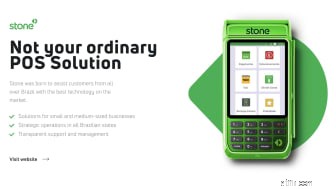
STORT DYK I PRIS
Det brasilianske finansteknologifirma StoneCo (STNE, $31,31) leverer software og hardware til virksomheder for at lette kredit- og debetkortbetalinger. Og det havde været en af de "voksendeste" Warren Buffett-aktier, siden Berkshire trådte ind i positionen i 4. kvartal 2018.
I hvert fald indtil for nylig.
STNE-aktierne blev mere end fordoblet i 2020 for nemt at overgå S&P 500's afkast på 18 %, hvilket bragte Buffetts gevinster siden slutningen af 2018 til 355 %. Men StoneCos aktie er siden blevet iskold og har mistet 64 % af sin værdi fra år til dato i 2021, og aktier har nu underperformeret S&P 500 med mere end 30 point siden starten af 2019.
Det er derfor ikke så mærkeligt, at Buffett tog en del overskud i løbet af 1. kvartal 2021 og solgte omkring 3,5 millioner aktier eller 24 % af aktieposten.
I betragtning af den relativt lille stilling i STNE og det faktum, at det er et fintech-selskab, vil du ikke blive overrasket over at høre, at stillingen blev indledt af Buffett-løjtnant Todd Combs – uden tvivl med Oracle of Omahas velsignelse.
Men selvom StoneCo ikke nødvendigvis er i Buffett-aktier-planen, passer det ikke desto mindre godt med Berkshire Hathaways generelle bullishness på virksomheder, der faciliterer og behandler betalinger. "Betalinger er en kæmpe aftale på verdensplan," sagde Warren Buffett på Berkshires aktionærmøde i 2018.
Og virksomheden vokser stadig som ukrudt. 2020 samlede betalingsvolumen (TPV) steg 62,6 % år-til-år til 209,9 milliarder brasilianske real, og indtægterne var 28,9 % højere til 3,3 milliarder brasilianske realer.

Berkshire Hathaway har masser af forsikringseksponering i sine kerneaktiviteter, herunder Geico, General Re, MLMIC Insurance og Berkshire Hathaway Specialty Insurance, blandt andre. Men branchen har aldrig været en vigtig faktor i sin aktieportefølje. Faktisk dumpede virksomheden, hvad der var tilbage i dets ejerandel af Travellers (TRV) i begyndelsen af 2020.
Så det var noget af en overraskelse, at BRK.B ikke kun købte sig ind i Marsh McLennan (MMC, 167,35 USD) i slutningen af 2020, men udvidede sin position i 1. kvartal 2021.
Berkshire indledte en position på 4,2 millioner aktier til en værdi af knap en halv milliard dollars i løbet af 4. kvartal 2020. Det var ikke en større position, med kun 0,2 % af den samlede værdi af Berkshires aktiebeholdning. Men i kraft af yderligere ca. 1 million aktier købt i løbet af første kvartal af 2021, var ejerandelen steget med 23 % på blot et par korte måneder.
Buffett har dog haft et hjerteskifte på det seneste, idet han har reduceret positionen med 20 % i løbet af andet kvartal og derefter med yderligere 34 % i 3. kvartal 2021, hvilket efterlader den med kun 2,7 millioner aktier.
Aktier i MMC, der leverer forskellige risiko-, strategi- og konsulentydelser, har længe været efternøler. Måske ser Buffett uudnyttet værdi. Selskabet udbetaler også et beskedent udbytte, der giver 1,3 % på nuværende tidspunkt.
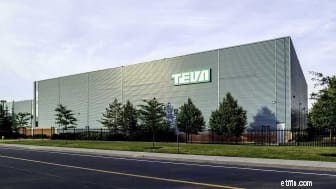
Berkshire Hathaway flyttede ind i Teva Pharmaceutical (TEVA, $9,44) i løbet af 2017's fjerde kvartal, og virksomheden lignede en klassisk Warren Buffett-aktie på det tidspunkt.
Den Israel-baserede lægemiddelproducent var ude af gunst - for at sige det mildt. En oppustet balance, massefyringer og det truende udløb af lægemiddelpatenter fik shortsælgere til at slikke deres koteletter.
Da Buffett trådte ind, var Teva-aktierne faldet omkring 70 % fra deres top i midten af 2015. Berkshire fordoblede derefter sin ejerandel i Teva i løbet af første kvartal af 2018, hvor aktierne så virkelig billige ud.
Problemet er:De er stadig billigt.
TEVA-aktier har mistet næsten 45 % af deres værdi siden starten af 2. kvartal 2018. De handles i øjeblikket til mindre end fire gange analytikernes estimater for fremtidig indtjening, hvilket er en brøkdel af S&P 500's forward P/E.
Men Berkshire har forladt stillingen alene i omkring et år. Dets seneste træk var en lille nedskæring på 1 % i 1. kvartal 2020. Og Buffett er fortsat Tevas fjerdestørste aktionærer i kraft af sin 3,9 % ejerandel i det farmaceutiske navn.

Sundhedspleje har typisk ikke repræsenteret en stor procentdel af Berkshire Hathaways aktiver, men holdingselskabet har normalt positioner i flere af sektorens navne. Det er stadig tilfældet efter BRK.B's exits i Merck og Organon, da Oracle of Omaha har besluttet at bringe Royalty Pharma (RPRX, $41,70) ind i hans stald af Buffett-aktier.
Når det er sagt, er RPRX ikke din sædvanlige farmaceutiske leg.
Royalty Pharma er, som navnet måske indikerer, fokuseret på at erhverve biofarmaceutiske royalties. Det forsker ikke i eller udvikler lægemidler – det hjælper med at skaffe kapital til de virksomheder, der gør det. Som virksomheden forklarer:
"Vi finansierer innovation i den biofarmaceutiske industri både direkte og indirekte – direkte når vi samarbejder med virksomheder for at medfinansiere sent stadium af kliniske forsøg og nye produktlanceringer i bytte for fremtidige royalties, og indirekte når vi erhverver eksisterende royalties fra de oprindelige innovatører. "
Gennem den model har RPRX fået et stykke blockbuster-lægemidler såsom AbbVies Imbruvica, Biogens (BIIB) Tysabri og Pfizers (PFE) Xtandi.
Buffett brugte 475 millioner dollars på at indlede en aktiepost i RPRX i løbet af tredje kvartal, hvilket øjeblikkeligt gjorde ham til en top-10 aktionær med 3,1 % af alle aktier. Men det er stadig en relativt mager position i Berkshire Hathaway-porteføljen med mindre end 0,2 % af aktieaktiverne.

Globe Life (GL, $94,58) – kendt som Torchmark indtil 2019 – er en anden af de små forsikringsrelaterede beholdninger i Berkshire Hathaway-porteføljen.
GL, et livs- og sundhedsforsikringsselskab, er måske et kedeligt selskab, men det har stille og roligt været et meget godt aktievalg. Berkshire Hathaway har ejet aktier i Globe Life/Torchmark siden begyndelsen af 2001. På det tidspunkt har GL genereret et samlet afkast på 566 %, hvilket overgår S&P 500's præstation på 504 % inklusive udbytte.
BRK.B ejer 6,2 % af Globe Lifes udestående aktier, hvilket gør det til firmaets tredjestørste aktionær efter Vanguard og BlackRock (BLK).

Berkshire Hathaway øgede sin eksponering mod kommunikationstjenestesektoren i løbet af tredje kvartal af 2020 ved at erhverve en mindre andel i trådløs kommunikationsvirksomhed T-Mobile US (TMUS, $117,77).
Så fordoblede Buffett bogstaveligt talt det væddemål i løbet af 4. kvartal 2020 og voksede sin indsats med yderligere 2,8 millioner aktier eller 117 %.
T-Mobile er bestemt en meget mere attraktiv investering, da den lukkede sin fusion på 26 milliarder dollars med Sprint i april 2020. Aftalen skabte en rigtig nr. 3 trådløst selskab, hvis samlede abonnenter er mindst inden for samme boldbane som Verizon (VZ) og AT&T (T).
Aktier har dog haft et barskt 2021, med et fald på 12 % i forhold til et samlet afkast på omkring 26 % for det bredere marked.
Aktieandelen på 5,2 millioner dollars, 670 millioner dollars, repræsenterer nu omkring en kvart procent af Berkshire Hathaway-porteføljens værdi. Det svarer til en ejerandel på 0,4 % i firmaet, hvilket gør Buffett til en af firmaets 20 største aktionærer.
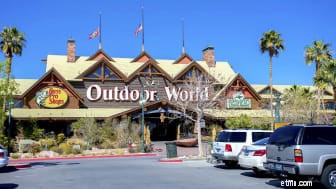
Berkshires position i Store Capital (STOR, $34,24), som den gik ind i i løbet af sommeren 2017, var en usædvanlig en. Ejendomsinvesteringsforeninger (REIT'er) – en måde at investere i fast ejendom uden at eje de faktiske aktiver – har aldrig været store blandt Buffett-aktier.
Store investerer i enkeltlejerejendomme, herunder kæderestauranter, supermarkeder, apoteker og andre detail-, service- og distributionsfaciliteter. Det vil sige, at Store er et væddemål på fysiske detailhandel, som menes at være i permanent tilbagegang.
Buffett spionerede imidlertid værdi - og han spionerede det i temmelig lang tid. Store Capital CEO Christopher Volk fortalte CNBC, at Buffett studerede REIT i tre år, før han tiltrådte sin stilling.
The Oracle of Omaha must've seen similar value arise in the company's February-March dip, which sent STOR shares off by roughly 65% from peak to trough. We say that because he bought 5.8 million shares, or an additional 31%, to bring his stake to 24.4 million shares yielding 4.5% at current prices.
Good news for Buffett:STOR shares have returned 124% since the March bottom to top the S&P 500's 115% total return since then.
BRK.B now owns 9.0% of shares outstanding, making it Store Capital's third-largest shareholder after Vanguard and BlackRock.

Warren Buffett has found a winner in RH (RH, $649.29), which many readers know as Restoration Hardware.
Berkshire, which already is positioned in home furnishings retail via its Nebraska Furniture Mart subsidiary, added more exposure to the space with his Q3 2019 entry into RH, then made a considerable addition to his stake to close out the year. The holding company has since topped up its position by 1% in Q1 2021, and 2% in Q2.
RH operates 106 retail and outlet stores across the U.S. and Canada. It also owns Waterworks, a high-end bath-and-kitchen retailer with 14 showrooms.
While brick-and-mortar retailers have struggled mightily over the past few years thanks in part to the rise of e-commerce, RH has found success catering to the upper crust. And that success continued throughout the COVID pandemic as Americans, forced to work from home, decided to spend on improving their environs.
RH shares have almost tripled since Jan. 1, 2020, up 198% versus a 49% total return for the broader market. Shares are killing it in 2021, too, up 42% to the S&P 500's 26%.
It's hard to tell whether this was an Oracle of Omaha buy, or a project of one of his lieutenants, Ted Weschler or Todd Combs. Buffett has been mostly mum on RH. Still, the stake fits broadly with the Oracle's worldview. Buffett stocks tend to be bets on America's growth, which is exactly what a bet on housing and housing-related industries is.
Buffett currently is the RH's third-largest investor by virtue of owning about 8.5% of all shares outstanding.

London-based Aon (AON, $300.44) offers a wide range of professional services, from insurance and reinsurance to pension administration and financial advising to health insurance. And it represented Buffett's lone new position in Q1 2021.
Like most insurance firms, you won't necessarily expect profits to grow in a perfectly straight line year after year. But revenues have improved without interruption over the past four years, and net income is up in three of the past five years.
That operational strength has led to superior returns against both the market and its peers. AON shares have provided a total return (price plus dividends) of 605% over the past decade, versus 354% for the S&P 500 and 302% for the SPDR S&P 500 Insurance ETF (KIE).
Berkshire hasn't exactly bet the farm on Aon. Even after adding 300,000 shares, or about 7%, the stake is still worth just $1.2 billion, or a little more than 0.4% of the equity portfolio's assets. Nonetheless, it's one of the few stocks Buffett &Co. have been bullish on amid a torrent of quarterly sales.

Among Warren Buffett stocks, banks are the most notable for getting the ax of late, but we should note that he's soured on several healthcare plays too.
Bristol Myers Squibb (BMY, $59.62) was one of several Big Pharma bets Warren Buffett during the third quarter of 2020. In the case of BMY, Berkshire took on almost 30 million shares worth $1.81 billion. Buffett grew even fonder of the company over the next few months. He tacked on another 3.4 million shares during Q4 2020, growing the position by 11%.
However, Buffett shed 2.3 million shares in the pharmaceutical giant during the first three months of 2021. In Q2, he dumped another 4.7 million shares, or 15%. And then in Q3, he trimmed yet another 16% or about 4.2 million shares.
BMY beefed up in a big way a year ago when it acquired pharmaceutical giant Celgene, and that likely was a big part of the initial attraction to this stock. The deal brought in a pair of blockbuster multiple myeloma treatments:Pomalyst and Revlimid, the latter of which also treats mantle cell lymphoma and myelodysplastic syndromes.
That's par for the course. A long track record of successful acquisitions has kept the pharma company's pipeline primed with big-name drugs over the years. Among the better-known names today are Coumadin, a blood thinner, and Glucophage, for type 2 diabetes.
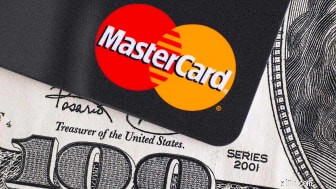
Berkshire Hathaway might own Mastercard (MA, $361.36), but Warren Buffett has given credit where credit is due:namely, to his portfolio managers Combs and Weschler.
Buffett's biggest regret is not pulling the trigger sooner.
"I could have bought them as well, and looking back, I should have," Buffett said about Visa and Mastercard in 2018, referring to his own investment in American Express.
Mastercard, which boasts 974 million cards in use across the world, is one of several payments processors that count themselves as Buffett stocks. That said, the position is a little lighter of late. Berkshire reduced its position by 6%, or 276,108 shares, during the third quarter, bringing MA's overall weight down to 0.5% of the equity portfolio.
Of course, Mastercard shares have returned some 1,430%, including dividends, since March 31, 2011 – several times better than the S&P 500 in that time – so it's hard to begrudge Warren Buffett a little profit-taking.
Besides:Since then, he has left well enough alone.

Biopharmaceutical firm AbbVie (ABBV, $116.84) is yet another of Berkshire's big pharma adds from Q3 2020, but it's also another healthcare stock that Buffett has been distancing himself from.
AbbVie is best known for blockbuster drugs such as Humira and Imbruvica, but analysts are also optimistic about the potential for Rinvoq and Skyrizi, which treat rheumatoid arthritis and plaque psoriasis.
And let's not forget that ABBV is a big hit with long-term dividend investors.
The pharmaceutical company is a Dividend Aristocrat, by virtue of having raised its annual dividend every year for half a century. Even better, its current yield is one of the highest in the S&P 500, and the company has raised the payout at an 18% average annual rate over the past five years. ABBV's dividend yield of 4.8% is several times better than the S&P 500 average of about 1.3%.
Most recently, however, Berkshire Hathaway has slimmed its position. The holding company sliced 29% off its AbbVie stake in Q3, unloading 6.1 million shares. That follows a reduction of 10%, or 2.3 million shares, in Q2, as well as a 10% cut to the position in Q1. AbbVie now accounts for 0.5% of Berkshire's equity portfolio, down from 0.8% at the end of Q1.
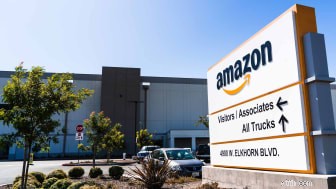
Amazon.com (AMZN, $3,545.68) has been a winner for Warren Buffett for most of the time since he first bit into the e-commerce giant in early 2019. However, like other AMZN shareholders, Berkshire is putting up with a rare bout of underperformance.
The holding company disclosed its 483,300-share position after the first quarter of 2019, then added another 54,000 shares the next quarter. AMZN shares are up 87% since the end of Q2 2019, versus 66% returns for the broader market.
That said, Amazon stock is up just 9% in 2021 versus 26% total returns for the S&P 500.
That's OK. If Buffett really feels like it, he can deflect the blame to one of his lieutenants. Even before Berkshire Hathaway submitted its Q1 2019 regulatory filing with the Securities and Exchange Commission, Buffett told CNBC:"One of the fellows in the office that manage money ... bought some Amazon, so it will show up (when that file is submitted)."
That said, Buffett has long been an admirer of Amazon CEO Jeff Bezos, he admitted in an interview. He also copped to wishing he had bought the stock sooner.
"Yeah, I've been a fan, and I've been an idiot for not buying (AMZN shares)," Buffett told CNBC.
Berkshire holds an insignificant 0.1% of Amazon's shares outstanding to barely keep it within the top 100 shareholders. Interestingly, Buffett marginally reduced the position by 4,000 shares in Q1 2020, but he hasn't touched the stake since.

Warren Buffett made quite the splash in fall 2020 when he finally dove head-first into the Snowflake (SNOW, $393.70) initial public offering (IPO).
The chairman and CEO of Berkshire Hathaway, for the record, has never been a fan of IPOs. He's said so, on the record, and has notably turned up his nose at some of the most heavily hyped stock market debuts.
But that didn't stop him from being involved when Snowflake, a cloud infrastructure unicorn, hit the public markets with a blockbuster IPO.
Snowflake is a cloud-data warehousing company that plays in a roughly $55 billion annual market – a market that's expanding. The firm boasts nearly 5,000 customers, 116 of which are each responsible for generating around $1 million in revenues within a 12-month period.
Snowflake is generating a lot of hype because it offers a way for companies to run their software on various cloud platforms, be they provided by Amazon.com, Microsoft (MSFT) or Google parent Alphabet (GOOGL), to name just three. And the stock is heating up after a weak start to the year, outperforming the S&P 500 37%-26%.

Visa (V, $212.30) operates the world's largest payments network, and thus is well-positioned to benefit from the growth of cashless transactions and digital mobile payments. Like Mastercard, Visa was the idea of lieutenants Todd Combs and/or Ted Weschler (Buffett won't tell). Also like Mastercard, Buffett wishes Berkshire had bought more.
And like Mastercard, Buffett's Visa position got a little smaller in Q3 2021. The stake in V was nipped by 4%, or 425,000 shares.
Berkshire Hathaway first bought Visa in the third quarter of 2011, and it has proven to be a mammoth winner. Including dividends, Visa has delivered a whopping total return of 964%, well more than double the S&P 500's 407% total return in that time. Visa also is a dividend-growth machine, ramping up its payout by 127% over the past five years alone.
"If I had been as smart as Ted or Todd, I would have (bought Visa)," Buffett told shareholders at the 2018 annual meeting.
Visa accounts for a modest but not insignificant holding at 0.7% of Buffett's portfolio. Meanwhile, Berkshire's half-percent stake in Visa doesn't even put it among the top 25 investors.

Kroger (KR, $42.66), is quickly becoming one of the most favored among Buffett's stocks, with the Oracle topping up his position by more than a fifth during the second quarter of 2021 after adding a huge chunk in Q1 too.
Berkshire Hathaway turned a few heads during the fourth quarter of 2019, when it initiated its 18.9 million-share position in Kroger. But given what was to come, it now looks like a savvy pick.
After all, the massive supermarket chain treated shareholders well during the worst of the pandemic and has continued to outperform in 2021. Indeed, shares are up by nearly 37% year-to-date with dividends included.
Kroger operates roughly 2,750 retail food stores operating under such banners as Dillons, Ralphs, Harris Teeter and its namesake brand, as well as 1,585 gas stations and even 170 jewelry stores under banners including Fred Meyer Jewelers and Littman Jewelers.
And Buffett is extremely interested in owning more and more of KR.
BRK.B added 10.7 million shares, or 21%, to his Kroger position in Q2. That followed the purchase of 17.5 million shares – a 52% increase in the position – during Q1.
With nearly 62 million shares total, Berkshire Hathaway is the third-largest owner of Kroger shares, with its 8.3% interest coming behind only BlackRock (10.2%) and Vanguard (9.4%).
It's only a middle-of-the-pack position at just 0.8% of Berkshire's equity assets. But the old-economy value play is a natural Buffett stock, right line line with the Oracle's traditional interests.

Berkshire bought Verisign (VRSN, $239.21) – an internet infrastructure service company that quite literally keeps the world connected online and acts as a domain registry for the .com, .net and other top-level domains – during a dip in the final quarter of 2012.
The company's dominance of the space exemplifies Buffett's love of deep moats, and the stake has paid off well. VRSN hasn't done well in the past year, up just 21% versus the S&P 500's 32%. But it has raced ahead by 516% since the start of 2013, which is well ahead of the S&P 500's 291% total return.
VRSN also is a teachable example of how stocks aren't good or bad in a bubble. One investor's brilliant purchase often is, depending on timing, another investor's biggest failure.
Stanley Druckenmiller, a famed former hedge fund manager, didn't have nearly as much luck with Verisign. Druckenmiller made a $200 million short on tech stocks in early 1999 while investing for George Soros' Quantum Fund, but lost $600 million in the trade. He then tried to win it back via a big $6 billion buy-in of tech stocks including Verisign ... but he lost $3 billion in six weeks as VRSN and several other recent purchases flopped, making it one of the "smart money's" worst stock calls of all time.
Berkshire Hathaway currently is the largest institutional investor in VRSN shares. It owns a little less than 13 million shares, giving it 11.4% control in the company.

Chevron (CVX, $116.82) is the only energy stock left in the Dow Jones Industrial Average after Exxon Mobil (XOM) was removed in 2020. It's also the sector's sole representative among Warren Buffett's stocks.
And Buffett can't seem to make up his mind about whether he likes or loathes CVX.
Berkshire Hathaway initiated a position of more than 48 million shares in the fourth quarter of 2020 valued at $4.1 billion. Although energy prices weren't expected to make huge moves 2021 after a considerable rebound in late 2020, the outlook for oil and gas was much improved and expected to get better as the global economy recovered.
Chevron specifically was well positioned, as it took advantage of the worst of the industry's woes in July 2020 by acquiring Noble Energy in a $5 billion all-stock transaction. The company's scale, asset quality and reserves make it one of the healthiest players in an industry where a lot of players are on injured reserve.
Also noteworthy is a 5%-plus yield at current prices. And that stands out all the more given that a slew of oil and gas firms had to slash or suspend their dividends in 2020. Chevron, meanwhile, has raised its quarterly payout for 34 consecutive years, including a 4% improvement announced in April to $1.34 per share.
And yet, Buffett reversed course in Q1 2021. In addition to booting Suncor Energy (SU) from the portfolio, Berkshire jettisoned a little more than half of its CVX position, unloading 24.8 million shares. He followed that up by dropping another 550,000 or so shares, or 2%, in Q2, to bring the position down to 23.1 million shares.
But Buffett flipped the script again in Q3, adding 28.7 million shares, or 24%, to his position.
The stake isn't nothing – CVX makes up nearly 1% of the Berkshire portfolio and is still a top-15 position. Meanwhile, at 1.5% of Chevron shares, Berkshire is the firm's sixth-largest investor.

Charter Communications (CHTR, $692.91) markets cable TV, internet, telephone and other services under the Spectrum brand, which is America's second-largest cable operator behind Comcast (CMCSA). It greatly expanded its reach in 2016 when it acquired Time Warner Cable and sister company Bright House Networks.
And it's also yet another Buffett stock with a John Malone connection – albeit a small one now. Malone served on the telecom and media company's board of directors from 2013 until 2018, when he stepped down to concentrate his focus on a smaller group of companies. (He does remain a director emeritus, however.)
Buffett entered CHTR in the second quarter of 2014, but he has seemingly lost his love for the telecom company in recent years. His position has been trimmed down from 9.4 million shares in early 2017 to just 4.2 million shares as of Berkshire's most recent 13F, including a million-share reduction (or 19%) in Q3 2021.
Charter remains a decent position in the Berkshire Hathaway portfolio, at a little more than 1% of its equity assets.

Berkshire technically has three different investments in satellite-radio leader Sirius XM Holdings (SIRI). Not only does it hold a slug of SIRI shares – it also has positions via two different tracking stocks:Liberty Sirius XM Group Series A (LSXMA, $55.74) and Liberty Sirius XM Group Series C (LSXMK) tracking stock.
Liberty Media has for years held a large stake in Sirius XM Holdings. But in 2015, the company actually recapitalized, offering (among other things) several tracking stocks that allowed investors to participate in the performance of Liberty's Sirius XM investment directly rather than get it piecemeal through Liberty Media itself.
While that stake has largely been left alone over the past few quarters, Buffett decided to amplify his Sirius bet by tacking on another 20 million or so shares of LSXMA, or a 35% bump from the second quarter of 2021.
Berkshire is the largest institutional shareholder in each of the tracking stocks, holding 15.3% of Liberty Sirius XM's C shares and 19.2% of the A shares.
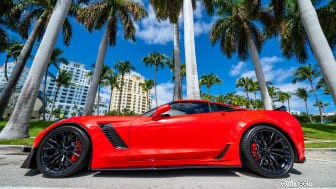
Warren Buffett first took a stake in General Motors (GM, $62.97) in early 2012. And over the past few years, he became even more bullish on the world's fourth-largest auto manufacturer by production, upping Berkshire Hathaway's holdings in 2018, 2019 and as recently as Q3 2020.
But lately, Buffett has started to distance himself.
Berkshire reduced its ownership in the car company by another 10% in Q2, or 7 million shares. That follows cuts of 5.5 million shares (7.6%) in the first three months of 2021, and 7.5 million shares (9.0%) during the final quarter of 2020.
General Motors has always looked like a classic Buffett value bet. After all, there are fewer American brands more iconic than GM. He also has sung the praises of CEO Mary Barra on several occasions. And the stock perennially trades at crazy-cheap multiples of expected earnings.
But with shares up nearly 260% since the COVID bottom, maybe it was time to take a little more off the top of a profitable investment – even if analysts still like the valuation and potential for resumption of income.
"On valuation, GM shares appear favorably valued based on most standard valuation metrics," writes Argus Research analyst Bill Selesky, who rates GM at Buy. "We also expect the company to soon reinstate its dividend."
Then there's the matter of allocation. Thanks to GM stock’s strong price performance, it still accounts for almost 1.1% of Berkshire Hathaway's total equity portfolio, down from 1.4% before Buffett's most recent trimming.

Bank of New York Mellon (BK, $59.91) truly stands apart from the back.
Warren Buffett has been an admirer of BNY Mellon for some time, and despite his dwindling love for banks, he has largely left his BK stake alone. He did trim the position a little in Q2 2020, but that's nothing compared to the heavy-handed haircuts that Berkshire's other bank holdings have suffered over the past few quarters.
Bank of New York Mellon is a custodian bank that holds assets for institutional clients and provides back-end accounting services. Its roots actually go all the way back to 1784, when Bank of New York was founded by a group including Alexander Hamilton and Aaron Burr. Today, BK is the nation's ninth-largest bank by assets, according to data from the Federal Reserve.
Berkshire Hathaway first took a position in BK back during Q3 2010, when it paid an estimated average price of $43.90. Since then, Berkshire Hathaway has become the bank's largest investor at 8.4% of shares. (Vanguard is No. 2 at 8.0%.)

DaVita (DVA, $106.47) was a largely undisturbed holding in the Berkshire Hathaway equity portfolio, at least up until in 2020. Then Buffett snipped 1% of his stake in the kidney care provider and dialysis center operator in Q1 2020. He cut it by another 5% in Q3.
But Buffett has left the position alone in 2021.
DaVita serves patients via more than 3,000 dialysis centers in the U.S. and nine other countries. Aging baby boomers and a graying population in many developed markets should provide a strong, secular tailwind.
Berkshire disclosed its initial position in DaVita during 2012's first quarter. Given that DVA was a large position of Ted Weschler's Peninsula Capital in his pre-Berkshire days, it wasn't unreasonable to assume that it was his pick. Weschler confirmed as much in 2014.
DaVita's shares have been a disappointment, however. DVA has underperformed the S&P 500 by roughly 167 percentage points since Q1 2012, including a 9% loss in 2021.
For now, Buffett is DaVita's largest shareholder by a country mile. Its stake of 36.1 million shares represents a little more than a third of the company's shares outstanding. And DVA remains a top-10 holding in the Berkshire Hathaway equity portfolio.

U.S. Bancorp (USB, $60.46) is the nation's fifth-largest bank by assets and America's biggest regional bank. It'a also one of the oldest Buffett stocks in the Berkshire Hathaway portfolio; the Oracle of Omaha initiated his position in the first quarter of 2006.
Buffett is notoriously tight-lipped about U.S. Bancorp and, at least historically speaking, has rarely touched the position. But he clipped it by another 1% in Q3, or by 2.5 million shares, following trimmings of 0.6% and 1.1% in Q2 and Q1, respectively.
Scraping just a bit off the USB stake stands in stark contrast to what Buffett has done with so many of Berkshire's other bank stocks, however. Mostly, he's taken a hatchet to them. And it's not like the regional lender's returns have justified holding on when Buffett has abandoned so many of its peers.
True, USB's total return beats the broader market by 6.6 percentage points so far in 2021, but it lags considerably over the past three-, five-, 10- and 15-year periods.
U.S. Bancorp shareholders no doubt appreciate Berkshire's vote of confidence. The holding company's 8.5% stake makes it the largest institutional shareholder, ahead of Vanguard (7.3%) and BlackRock (6.3%).

Verizon (VZ, $52.40), the only telecommunications company in the Dow Jones Industrial Average, is a beloved staple of long-term dividend investors everywhere. That's why it looks so at home in Berkshire Hathaway's portfolio.
And Buffett is warming to it.
Berkshire and Buffett initiated a brand-new stake in VZ in Q4 2020, picking up almost 146.7 million shares valued at $8.69 billion. In one fell swoop, the telco accounted for a sizable 3.2% of Berkshire's total equity portfolio value.
That position got a little bigger in Q1 2021, as Warren Buffett added more than 12 million shares, improving the stake by 8%. VZ's percentage of assets has slipped a bit, but still remains a hefty 2.9% weighting. Berkshire also remains the fourth-largest owner of VZ shares at 3.8%, behind institutional investors Vanguard (7.9%), BlackRock (7.0%) and State Street Global Advisors (4.0%).
Bulls like Verizon for both its growth prospects in the era of 5G networking, its defensive characteristics and the reliable income stream it delivers to investors.
"With a safe dividend yield and low leverage, we believe the market favors Verizon's 5G strategy and simpler story," say Raymond James equity research analysts. "Whether we are in an expansion or a contraction, consumers' internet and mobile plans may be the last thing they're willing to give up when times get tough."

Moody's (MCO, $390.78) is a business and financial services firm best known for its Moody's Investors Service credit rating arm – one of the three major American business credit ratings agencies alongside Standard &Poor's and Fitch Ratings. It also offers financial analysis technology via Moody's Analytics.
MCO is a longtime, significant holding in the Berkshire Hathaway portfolio – and an ironic one to boot.
"Uncle Warren" first dipped his toe in during the first quarter of 2001, and he has been content with his investment of late, leaving his 24.7 million-share stake unchanged over the past couple of years.
The funny thing about Berkshire's holding in Moody's is that Buffett said back in 2010 that "Our job is to rate credit ourselves. We do not outsource that to ratings agencies." Yet Berkshire Hathaway is the largest institutional holder of MCO, owning 13.2% of the financial firm. (Vanguard is a distant second at 7.2%.)
The holding is meaningful on Berkshire's end, too. At nearly 3% of assets, Moody's is one of the top 10 Buffett stocks.
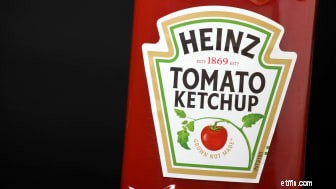
Warren Buffett was one of the driving forces behind the 2015 merger of packaged-food giant Kraft and ketchup purveyor Heinz to create Kraft Heinz (KHC, $37.62). It's Berkshire's fifth-largest stock investment with a market value of nearly $12 billion.
But it has been a dog, and Buffett likely still regrets his participation in what was one of his biggest deals of the past decade.
Berkshire Hathaway recorded a $3 billion non-cash loss from an impairment of intangible assets in 2018, "arising almost entirely from our equity interest in Kraft Heinz," Buffett wrote in his 2019 letter to shareholders. In early 2019, KHC wrote down the value of its brands by nearly $15 billion. In 2020, Fitch downgraded the company's debt to junk status. Its second-quarter earnings beat expectations, but Kraft still had to record yet another $2.9 billion in impairments.
Kraft's operational performance has at least improved since then, but its shares have gone back to lagging the broader market. KHC still has a lot of catching-up to do to shed its "dud" status in the Berkshire Hathaway equity portfolio.
"I was wrong (about KHC)," Buffett flatly admitted on CNBC in 2019. Buffett says he overpaid, and it's difficult to disagree. Even including dividends, Kraft's shares are still down more than 30% since Sept. 30, 2015.
Berkshire Hathaway remains the company's second-largest shareholder with a 26.6% stake. Private investment firm 3G Capital – who teamed up with Berkshire in 2013 to purchase H.J. Heinz – is tops at 44.3%.

Buffett, an unabashed fan of Cherry Coke, started investing in Coca-Cola (KO, $56.62) stock soon after the stock market crash of 1987. In his 1988 letter to Berkshire shareholders, Buffett said he expected to hold on to the stock "for a long time."
Three decades later, he has proven true to his word. Berkshire is KO's largest shareholder with 9.3% of its shares outstanding, and Coca-Cola remains among the most iconic of Buffett stocks.
Coca-Cola made a brief appearance as a component of the Dow Jones Industrial Average in the 1930s. Shares were added back to the Dow in 1987, and they've remained a stalwart member ever since.
While Coca-Cola's stock performance hasn't impressed – its 128% total return over the past decade is well behind the S&P 500's 354% return – it has been an income investor's dream. The beverage maker has increased its dividend annually for 59 years.

American Express (AXP, $183.13) continues to endure as one of Warren Buffett's favorite investments.
Buffett likes to say this his preferred holding period is "forever," and AmEx is one of the premier examples. Berkshire entered its initial stake in the credit card company in 1963, when a struggling AmEx badly needed capital. Buffett obliged, getting favorable terms on his investment. He has played the role of white knight many times over the years, including during the 2008 financial crisis, as a means to get stakes in good companies at a discount. (Think:Goldman Sachs and Bank of America.)
No one would've been surprised if Buffett had trimmed his AXP position sometime during the course of 2020. After all, Berkshire dumped financial stocks all year, and he even trimmed his stakes in payments processors during Q2.
American Express is both . And yet the position remained fully intact across the year.
Berkshire Hathaway, which owns 19.1% of American Express' shares outstanding, is by far the company's largest shareholder. No. 2 BlackRock owns 6.0%.
Buffett praised the power of AmEx's brand at Berkshire's 2019 annual meeting. "It's a fantastic story, and I'm glad we own 18% of it," he said. Of course he's glad: A roughly 1,630% total return over the past quarter-century would make most investors glow.
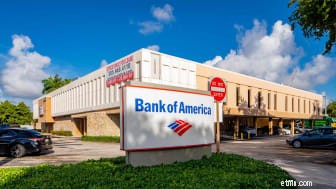
Buffett spent most of 2020 hacking and slashing at his various bank-stock holdings. But he remained as committed as ever to Bank of America (BAC, $47.05).
Buffett's interest in BAC dates back to 2011, when he swooped in to shore up the firm's finances in the wake of the Great Recession. In exchange for investing $5 billion in the firm, Berkshire received preferred stock yielding 6% and warrants giving Berkshire the right to purchase BofA common stock at a steep discount. (The Oracle of Omaha exercised those warrants in 2017, netting a $12 billion profit in the process.)
Warren Buffett let go of 2.2 million BAC shares in Q4 2019, but that represented a mere 0.2% reduction. And while he cut heavily into various bank holdings in 2020, he actually added to Berkshire's already large position in Q3 of that year by snapping up more than 85 million shares.
The stake in BAC, worth more than $41 billion, accounts for 14.6% of the holding company's total portfolio value. Meanwhile, Berkshire is Bank of America's largest shareholder, at 12.0% of its shares outstanding.

Warren Buffett absolutely adores Apple (AAPL, $150.00), but even he decided to take a little bite out of BRK.B's stake at the end of last year.
Berkshire Hathaway sold off 57.2 million shares, or 6% of its AAPL stake, during the final quarter of 2020. But that likely had little to do with a lack of faith in the iPhone maker.
Call it a hunch.
"I don’t think of Apple as a stock," Buffett has said about Apple. "I think of it as our third business."
It might as well be. Even after its Q4 share sales, the tech giant still represents more than 40% of assets in the Berkshire Hathaway equity portfolio. And Berkshire remains Apple's third largest investor with an 887 million-share stake representing about 5.4% of all shares outstanding. Only Vanguard and BlackRock – giants of the passively managed index fund universe – hold more Apple stock.
The Oracle of Omaha has only occasionally dabbled in technology stocks. But he bought Apple with two fists, and he's more than happy to discuss his ardor for AAPL. As he has said more than once on CNBC, he loves the power of Apple's brand and its ecosystem of products (such as the iPhone and iPad) and services (such as Apple Pay and iTunes).
"It's probably the best business I know in the world," Buffett said a year ago. "And that is a bigger commitment that we have in any business except insurance and the railroad."
It's likely that Buffett was merely taking profits on what has been an exceptionally fruitful investment. AAPL shares have returned 494% since the end of Q1 2016, when Berkshire initiated its stake. That's more than three times better than the broader market.